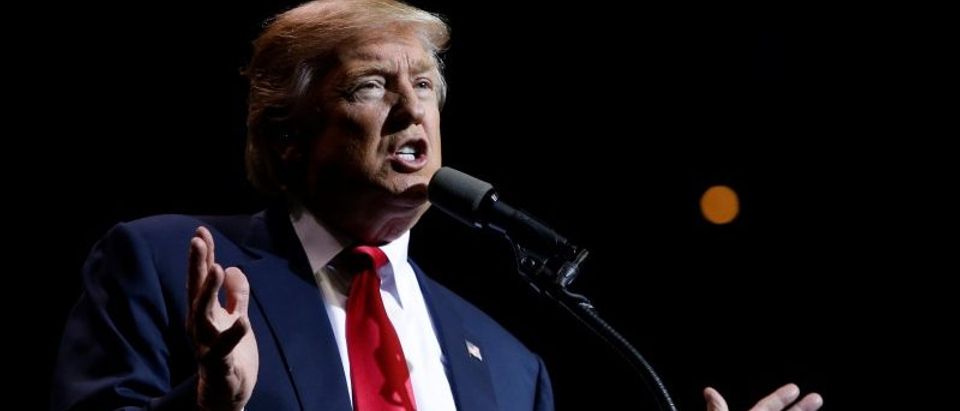Donald Trump will soon be President Trump. In light of this, it’s worth examining the potential impact of one of his most frequent promises: the replacement of the Affordable Care Act (ACA).
I suspect average Americans were encouraged by Trump’s promise, and might expect that whatever replaces the ACA, will be more life-affirming in terms of providing better care for vulnerable patients having trouble receiving wanted treatment.
However, I’m pessimistic that any new healthcare law will substantially improve care for our nation’s most medically vulnerable. On the contrary, I expect the trend of offering approved suicide, as if it were medicine, to gain steam across the country.
Why? We live in an individualistic time when personal autonomy is seen as the only way a person has dignity (rather than dignity being fundamental), and, as the thinking goes, if someone has decided they want to die, who are we to stop them?
This attitude, unfortunately, encourages suicide among patients who aren’t necessarily in a terminal condition.
I ultimately expect things to worsen, because there exists a growing number of people in medicine (and insurance) who stand to profit through rationing, and denial-of-care scenarios.
I know because I witnessed firsthand the way in which millions of Americans saw my sister, Terri Schiavo, as already ‘dead’ due to her brain injury—even though she was not terminal and was not reliant on any life support machines.
But because she was fed through a feeding tube (like hundreds of thousands of Americans each year), foes of Terri’s right to life would characterize her food and water delivered by plastic tubes as a form of “artificial life support.” (If food and water are life support, then we’re all on life support.)
It was a convenient way for opponents to win the argument, but it was a lie that resulted in my sister being barbarically dehydrated for two-weeks, because a judge ruled, in effect, that preserving her dignity meant dehydrating her to death.
Advocates for Terri’s “right to die” asked, “Who would want to live like that?” Setting aside the millions of brain injury survivors who do “live like that”, I continue to ask: “Who would want to die like that?”
The way my sister was condemned to die is the same type of death that many physicians now impose on their patients.
Every year, nearly 11% of the upwards of six million patients who are admitted to intensive care units are labeled “futile,” meaning that some 600,000 patients face a decision to have their life ended—not because they are dying, but rather because their “medical provider” believes this is the best “treatment” they can hope to receive.
We sanction this in law by allowing death through rationing, and that reclassification of basic care isn’t worth the cost. But if there’s anything that’s “worth the cost” in a nation – whose people manage literally trillions in credit card debt – it’s life-affirming medical care.
That we think otherwise, is a sickness in itself. In fact, we condone it. Already 46 states recognize a provider’s right to refuse life-saving/sustaining treatments. And a 2005 report published by the Robert Powell Center for Medical Ethics exposed that all but 11 states allow physicians and hospitals to disregard advance directives, even when the directive calls for treatment.
The result? In most states, if you want life-saving treatment like food and water, there is no guarantee your wishes will be honored, even if you make them clear in advance directives. When challenged, medical providers often claim the treatment is being denied because it is “futile.”
The current state of our medical system did not happen overnight. It’s true that the ACA, in a relatively short period, increased our vulnerability, but many of these changes and the dynamics involved can’t be explained easily.
Indeed, none of us should feel safe, because our laws seek to achieve profitability for the physicians, health systems and, insurers who are working toward a form of universal health insurance that can deny treatment based on perfunctory and opaque criteria.
So it shouldn’t be surprising that a 2014 Commonwealth Fund report revealed that our healthcare system ranks last in terms of health system quality, efficiency, access to care, equity, and healthy lives.
What can we do to protect ourselves? There are no guarantees. However, the best protection is good people in our lives. Specifically, a legally designated advocate as your power of attorney to make medical decisions, and is willing to fight vigorously for us, so that you receive life-affirming care.
It is because of all this, that my family established the Terri Schiavo Life & Hope Network with a mission of upholding human dignity through service to the medically vulnerable.
We are quickly approaching our 12th year of existence. We never expected to be so busy.
Bobby Schindler is the President of the Terri Schiavo Life & Hope Network, which upholds human dignity through service to the medically vulnerable.


